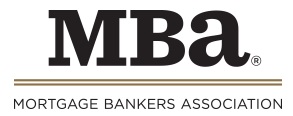WASHINGTON, D.C. – April 19, 2012 – (RealEstateRama) — Mortgage applications increased 6.9 percent from one week earlier, according to data from the Mortgage Bankers Association’s (MBA) Weekly Mortgage Applications Survey for the week ending April 13, 2012.
The Market Composite Index, a measure of mortgage loan application volume, increased 6.9 percent on a seasonally adjusted basis from one week earlier. On an unadjusted basis, the Index increased 6.5 percent compared with the previous week. The Refinance Index increased 13.5 percent from the previous week. The seasonally adjusted Purchase Index decreased 11.2 percent from one week earlier. The unadjusted Purchase Index decreased 10.4 percent compared with the previous week and was 13.9 percent lower than the same week one year ago.
The four week moving average for the seasonally adjusted Market Index is up 1.60 percent. The four week moving average is down 0.52 percent for the seasonally adjusted Purchase Index, while this average is up 2.36 percent for the Refinance Index.
The refinance share of mortgage activity increased to 75.2 percent of total applications from 70.5 percent the previous week. The adjustable-rate mortgage (ARM) share of activity decreased to 5.3 percent from 5.5 percent of total applications from the previous week.
“Renewed concerns about sovereign debt in Europe led to a drop in rates last week, with the 30-year rate tying our survey low, reached in early February. Refinance activity picked up in response, increasing 13.5 percent for the week. Participants in our survey indicated that about 32 percent of this refinance volume was for HARP loans,” said Jay Brinkmann, MBA’s Chief Economist and SVP of Research and Education. “While purchase activity declined sharply for the week, this was mostly due to a 23 percent drop in applications for FHA purchase loans. This drop follows big increases in the demand for FHA loans over several weeks in anticipation of the FHA mortgage insurance premium increases that went into effect last week. This was the largest weekly drop in the government purchase index since the expiration of the first-time homebuyer tax credit in May 2010. The demand for conventional purchase loans was down only slightly.”
The average loan size of all loans for home purchase in the US was $233,381 in March 2012, up from $225,463 in February 2012. The average loan size for a refinance was $214,593, down from $222,048 in February. The largest purchase loans were made in the Pacific region at $ 337,227. The largest refinance loans were also made in the Pacific region at $ 290,711.
The average contract interest rate for 30-year fixed-rate mortgages with conforming loan balances ($417,500 or less) decreased to 4.05 percent from 4.10 percent, with points increasing to 0.45 from 0.43 (including the origination fee) for 80 percent loan-to-value ratio (LTV) loans. The effective rate decreased from last week.
The average contract interest rate for 30-year fixed-rate mortgages with jumbo loan balances (greater than $417,500) decreased to 4.36 percent from 4.43 percent, with points remaining unchanged at 0.36 (including the origination fee) for 80 percent LTV loans. The effective rate decreased from last week.
The average contract interest rate for 30-year fixed-rate mortgages backed by the FHA decreased to 3.83 percent from 3.87 percent, with points increasing to 0.61 from 0.55 (including the origination fee) for 80 percent LTV loans. The effective rate decreased from last week.
The average contract interest rate for 15-year fixed-rate mortgages decreased to 3.33 percent from 3.37 percent, with points increasing to 0.41 from 0.37 (including the origination fee) for 80 percent LTV loans. The effective rate decreased from last week.
The average contract interest rate for 5/1 ARMs decreased to 2.83 percent from 2.89 percent, with points decreasing to 0.35 from 0.38 (including the origination fee) for 80 percent LTV loans. The effective rate decreased from last week.
If you would like to purchase a subscription of MBA’s Weekly Applications Survey, please visit www.mortgagebankers.org/WeeklyApps, contact "> or click here.
The survey covers over 75 percent of all U.S. retail residential mortgage applications, and has been conducted weekly since 1990. Respondents include mortgage bankers, commercial banks and thrifts. Base period and value for all indexes is March 16, 1990=100.
###
The Mortgage Bankers Association (MBA) is the national association representing the real estate finance industry, an industry that employs more than 280,000 people in virtually every community in the country. Headquartered in Washington, D.C., the association works to ensure the continued strength of the nation’s residential and commercial real estate markets; to expand homeownership and extend access to affordable housing to all Americans. MBA promotes fair and ethical lending practices and fosters professional excellence among real estate finance employees through a wide range of educational programs and a variety of publications. Its membership of over 2,200 companies includes all elements of real estate finance: mortgage companies, mortgage brokers, commercial banks, thrifts, Wall Street conduits, life insurance companies and others in the mortgage lending field. For additional information, visit MBA’s Web site: www.mortgagebankers.org.














